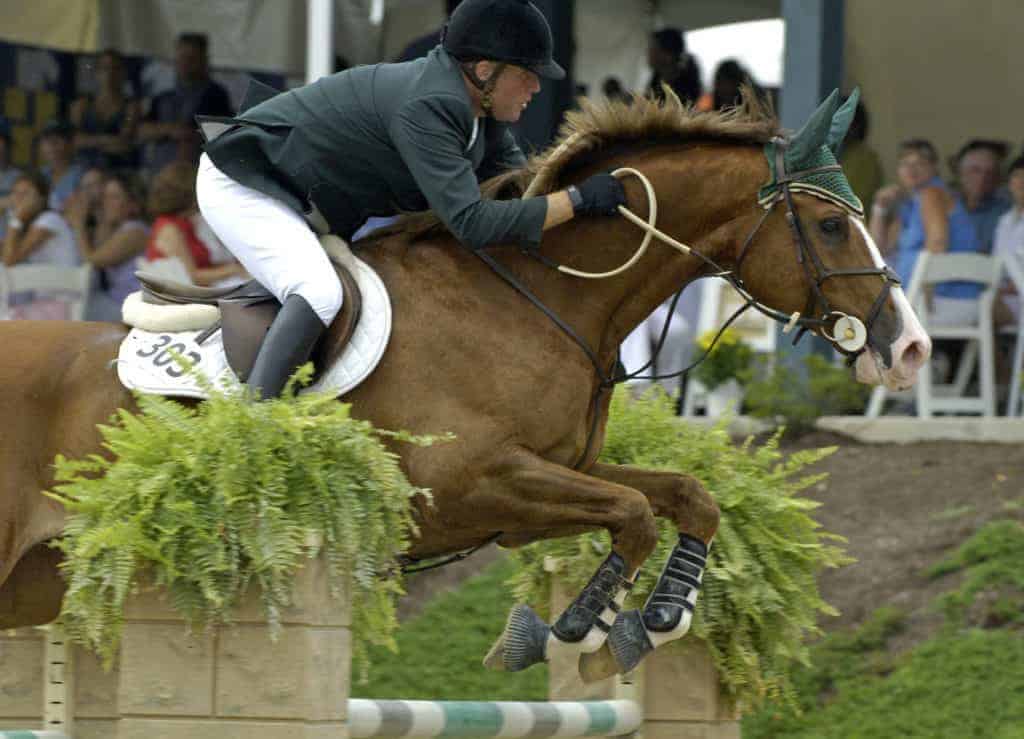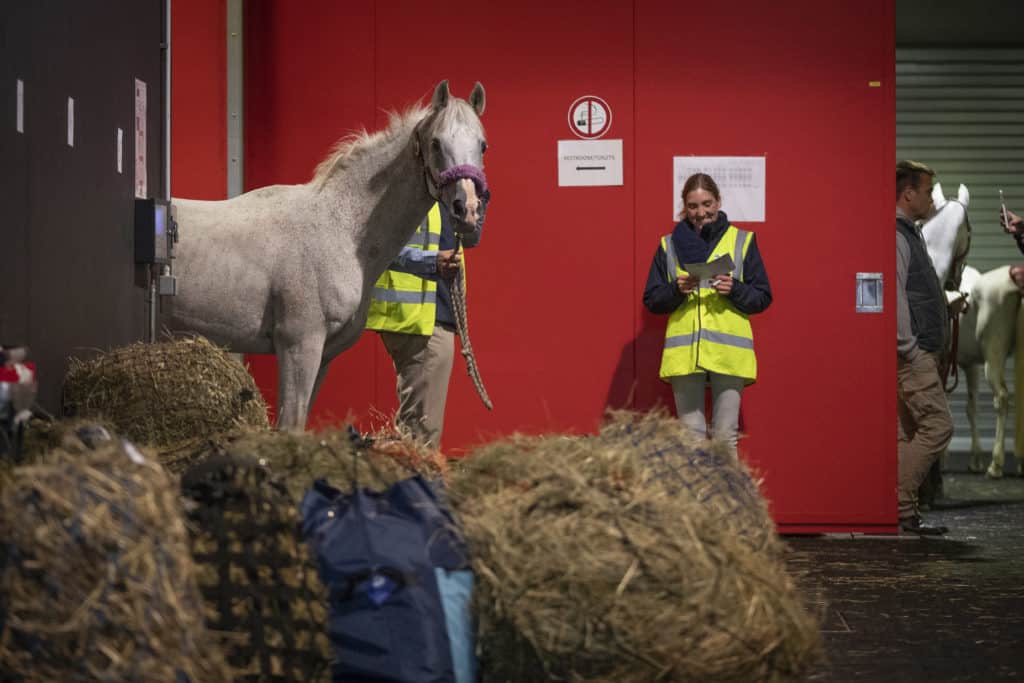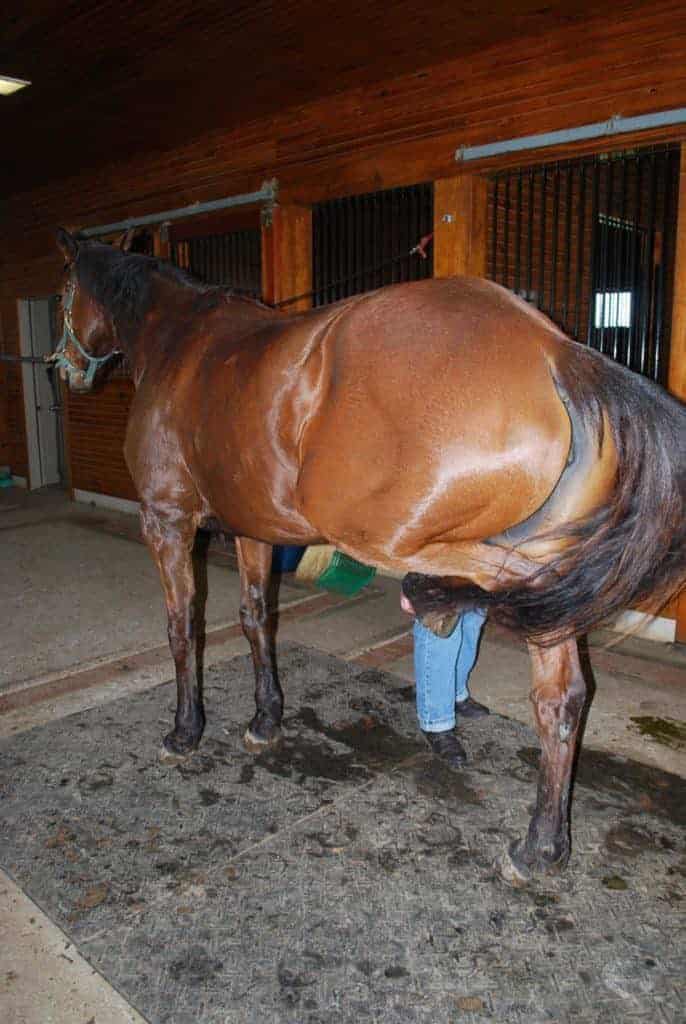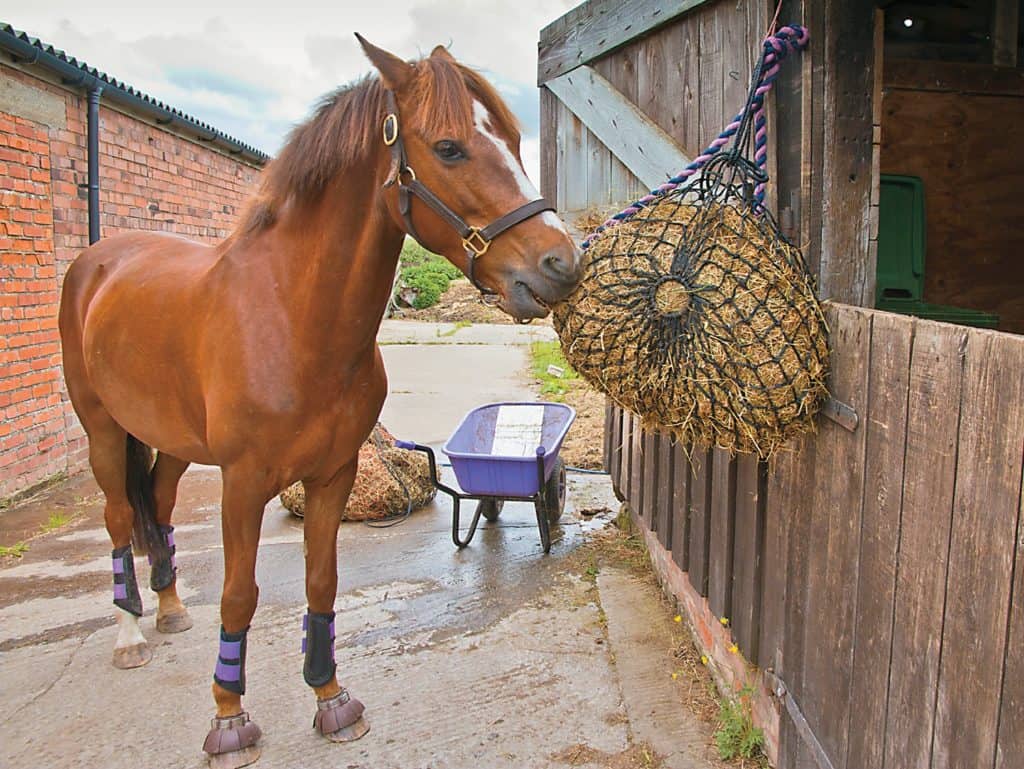
2018 WEG Dressage: Germany Leading Team Competition After Day 1
Germany took the lead after the first day of team dressage with a narrow lead over Sweden and the United States, respectively.
All aspects of caring for performance horses

Germany took the lead after the first day of team dressage with a narrow lead over Sweden and the United States, respectively.

Kissing spines are more likely to cause clinical problems in certain horse breeds, disciplines, and age groups. Download this special report to learn more.

We must consider the breeds of our horses and ponies when planning their diets. Here’s a look at what we currently know about feeding major equid categories and where we’re heading.

A fast-growing equestrian epicenter in a North Carolina hamlet prepares to host the 2018 World Equestrian Games.

Dr. Audrey DeClue describes how treating a six-months-pregnant Percheron mare would dramatically change the course of her life and career.

Good footing, proper conditioning, balanced nutrition, and careful attention to joints and soft tissues are key to maintaining eventers, hunter/jumpers, and dressage horses.

The first 67 of 550 equine athletes have arrived at the Tryon International Equestrian Center, nine days before the start of the FEI World Equestrian Games Tryon 2018.

Whether you’re taking your horse on a back-country vacation, moving out of state, or traveling to the World Equestrian Games, don’t assume your horse’s feed will be available at your destination.

Take steps to manage your horse’s weight and behavior while he’s cooped up.

The horse training aid researchers tested–made up of a system of loops and a pulley–could help keep rein tension levels at near zero with the horse’s nose at the vertical.

Selective breeding has led to a Thoroughbred uniquely adapted to modern racing’s demands. But it’s also led to inbreeding, and with that has come some less favorable genetic issues.

How does a veterinary behaviorist know for sure something is or is not a psychological problem?

Common feeding practices could be causing your horse’s stomach acid levels to rise.
This year’s lectures will focus neurology care, lameness exams, colic emergencies, surgical advancements, and more.

Learn how researchers are improving footing at two major competition venues in the United States, including the one that will host the 2018 World Equestrian Games next month.

Horses that don’t compete aren’t immune to gastric ulcer formation. Here’s what to watch for.
Stay on top of the most recent Horse Health news with
"*" indicates required fields